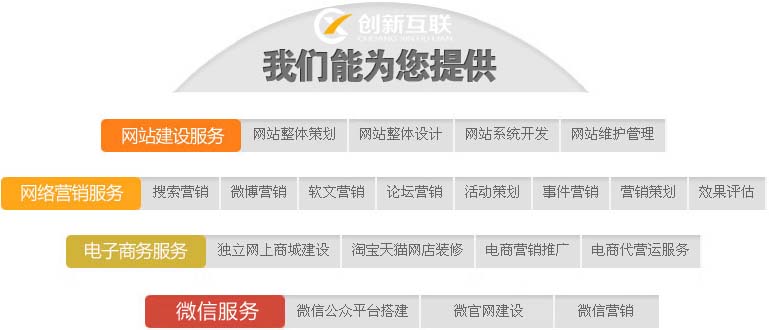扫二维码与项目经理沟通
我们在微信上24小时期待你的声音
解答本文疑问/技术咨询/运营咨询/技术建议/互联网交流
多线程中用委托,不会冲突。

创新互联-专业网站定制、快速模板网站建设、高性价比泰顺网站开发、企业建站全套包干低至880元,成熟完善的模板库,直接使用。一站式泰顺网站制作公司更省心,省钱,快速模板网站建设找我们,业务覆盖泰顺地区。费用合理售后完善,十载实体公司更值得信赖。
在类中用委托,也可以方便模块思路。
委托主要用于.NETFramework中的事件处理程序和回调函数,它是事件的基础。委托的作用类似于c++中函数指针的作用。不同的是,委托实例独立于它所封装的方法的类,并且方法类型与委托的类型是兼容的。函数指针只能引用静态函数,而委托可以应用静态和实例方法。所有委托都是继承自System.Delegate类,并且有一个调用列表。调用委托时所执行的方法都被存放在这样的一个连接列表中。使用delegate关键字可以声明一个委托。通过将委托与命名方法或匿名方法关联,可以对委托进行实例化。为了与命名方法一起使用,委托必须用具有可接受签名的方法进行实例化。usingSystem;usingSystem.Collections.Generic;usingSystem.Linq;usingSystem.Text;namespaceConsoleApplication1{//声明一个委托delegateintMydelegate();classProgram{staticvoidMain(string[]args){testp=newtest();//将委托指向非静态方法Mydelegatem=newMydelegate(p.InstanceMethod);//调用非静态方法m();//将委托指向静态方法m=newMydelegate(test.StaticMethod);//调用静态方法m();Console.Read();}}publicclasstest{publicintInstanceMethod(){Console.WriteLine("正在调用非静态方法InstanceMethod().");return0;}staticpublicintStaticMethod(){Console.WriteLine("正在调用静态方法StaticMethod()。。。。");return0;}}}
一委托:此示例演示如何将方法与委托关联然后通过委托调用该方法。
创建委托和匹配过程
创建一个名为 MySubDelegate 的委托。
Delegate Sub MySubDelegate(ByVal x As Integer)
声明一个类,该类包含与该委托具有相同签名的方法。
Class class1
Sub Sub1(ByVal x As Integer)
MsgBox("The value of x is: " CStr(x))
End Sub
End Class
定义一个方法,该方法创建该委托的实例并通过调用内置的 Invoke 方法调用与该委托关联的方法。
Protected Sub DelegateTest()
Dim c1 As New class1
' Create an instance of the delegate.
Dim msd As MySubDelegate = AddressOf c1.Sub1
' Call the method.
msd.Invoke(10)
End Sub
二、事件
下面的示例程序阐释如何在一个类中引发一个事件,然后在另一个类中处理该事件。AlarmClock 类定义公共事件 Alarm,并提供引发该事件的方法。AlarmEventArgs 类派生自 EventArgs,并定义 Alarm 事件特定的数据。WakeMeUp 类定义处理 Alarm 事件的 AlarmRang 方法。AlarmDriver 类一起使用类,将使用 WakeMeUp 的 AlarmRang 方法设置为处理 AlarmClock 的 Alarm 事件。
该示例程序使用事件和委托和引发事件中详细说明的概念。
示例
' EventSample.vb.
'
Option Explicit
Option Strict
Imports System
Imports System.ComponentModel
Imports Microsoft.VisualBasic
Namespace EventSample
' Class that contains the data for
' the alarm event. Derives from System.EventArgs.
'
Public Class AlarmEventArgs
Inherits EventArgs
Private _snoozePressed As Boolean
Private nrings As Integer
'Constructor.
'
Public Sub New(snoozePressed As Boolean, nrings As Integer)
Me._snoozePressed = snoozePressed
Me.nrings = nrings
End Sub
' The NumRings property returns the number of rings
' that the alarm clock has sounded when the alarm event
' is generated.
'
Public ReadOnly Property NumRings() As Integer
Get
Return nrings
End Get
End Property
' The SnoozePressed property indicates whether the snooze
' button is pressed on the alarm when the alarm event is generated.
'
Public ReadOnly Property SnoozePressed() As Boolean
Get
Return _snoozePressed
End Get
End Property
' The AlarmText property that contains the wake-up message.
'
Public ReadOnly Property AlarmText() As String
Get
If _snoozePressed Then
Return "Wake Up!!! Snooze time is over."
Else
Return "Wake Up!"
End If
End Get
End Property
End Class
' Delegate declaration.
'
Public Delegate Sub AlarmEventHandler(sender As Object, _
e As AlarmEventArgs)
' The Alarm class that raises the alarm event.
'
Public Class AlarmClock
Private _snoozePressed As Boolean = False
Private nrings As Integer = 0
Private stopFlag As Boolean = False
' The Stop property indicates whether the
' alarm should be turned off.
'
Public Property [Stop]() As Boolean
Get
Return stopFlag
End Get
Set
stopFlag = value
End Set
End Property
' The SnoozePressed property indicates whether the snooze
' button is pressed on the alarm when the alarm event is generated.
'
Public Property SnoozePressed() As Boolean
Get
Return _snoozePressed
End Get
Set
_snoozePressed = value
End Set
End Property
' The event member that is of type AlarmEventHandler.
'
Public Event Alarm As AlarmEventHandler
' The protected OnAlarm method raises the event by invoking
' the delegates. The sender is always this, the current instance
' of the class.
'
Protected Overridable Sub OnAlarm(e As AlarmEventArgs)
RaiseEvent Alarm(Me, e)
End Sub
' This alarm clock does not have
' a user interface.
' To simulate the alarm mechanism it has a loop
' that raises the alarm event at every iteration
' with a time delay of 300 milliseconds,
' if snooze is not pressed. If snooze is pressed,
' the time delay is 1000 milliseconds.
'
Public Sub Start()
Do
nrings += 1
If stopFlag Then
Exit Do
Else
If _snoozePressed Then
System.Threading.Thread.Sleep(1000)
If (True) Then
Dim e As New AlarmEventArgs(_snoozePressed, nrings)
OnAlarm(e)
End If
Else
System.Threading.Thread.Sleep(300)
Dim e As New AlarmEventArgs(_snoozePressed, nrings)
OnAlarm(e)
End If
End If
Loop
End Sub
End Class
' The WakeMeUp class has a method AlarmRang that handles the
' alarm event.
'
Public Class WakeMeUp
Public Sub AlarmRang(sender As Object, e As AlarmEventArgs)
Console.WriteLine((e.AlarmText + ControlChars.Cr))
If Not e.SnoozePressed Then
If e.NumRings Mod 10 = 0 Then
Console.WriteLine(" Let alarm ring? Enter Y")
Console.WriteLine(" Press Snooze? Enter N")
Console.WriteLine(" Stop Alarm? Enter Q")
Dim input As String = Console.ReadLine()
If input.Equals("Y") Or input.Equals("y") Then
Return
Else
If input.Equals("N") Or input.Equals("n") Then
CType(sender, AlarmClock).SnoozePressed = True
Return
Else
CType(sender, AlarmClock).Stop = True
Return
End If
End If
End If
Else
Console.WriteLine(" Let alarm ring? Enter Y")
Console.WriteLine(" Stop Alarm? Enter Q")
Dim input As String = Console.ReadLine()
If input.Equals("Y") Or input.Equals("y") Then
Return
Else
CType(sender, AlarmClock).Stop = True
Return
End If
End If
End Sub
End Class
' The driver class that hooks up the event handling method of
' WakeMeUp to the alarm event of an Alarm object using a delegate.
' In a forms-based application, the driver class is the
' form.
'
Public Class AlarmDriver
Public Shared Sub Main()
' Instantiates the event receiver.
Dim w As New WakeMeUp()
' Instantiates the event source.
Dim clock As New AlarmClock()
' Wires the AlarmRang method to the Alarm event.
AddHandler clock.Alarm, AddressOf w.AlarmRang
clock.Start()
End Sub
End Class
End Namespace
委托三个步骤
1、声明委托 用Delegate 声明一个委托 类型 参数要和 被委托的方法一样 例如 Delegate Function a(byval x as string) as string
2、实例化委托 dim t as new a(AddressOf Function Name)
3.通过 t(参数) 或者 t.Invoke(参数调用委托)
示例:
Module module1
Delegate Function a(ByVal x As Integer, ByVal y As Integer) As Integer '声明委托类型 委托可以使一个对象调用另一个对象的方法
Function sum(ByVal x As Integer, ByVal y As Integer) As Integer
Return (x + y)
End Function
Sub main()
Dim d As New a(AddressOf sum) '实例化委托
Dim s = 0
s = d.Invoke(1, 2) '执行委托
Console.WriteLine(s.ToString())
s = d(1, 2) '执行委托
Console.WriteLine(s.ToString())
MsgBox("")
End Sub
End Module

我们在微信上24小时期待你的声音
解答本文疑问/技术咨询/运营咨询/技术建议/互联网交流